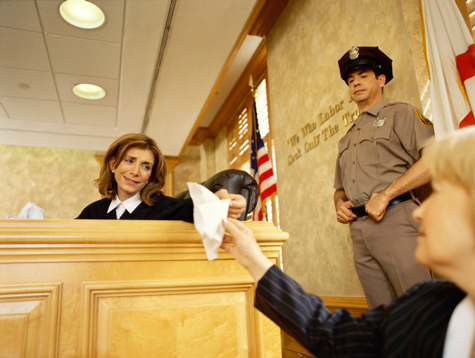When it comes to trial, the outcome can often hinge on the emotional response of the jury. While presenting cold, hard facts and evidence is crucial, it is equally important to connect with the jury on an emotional level. Emotions are powerful, and they can sway the jury's perception of the case. Therefore, learning how to emotionally move your jury can be a game-changer in a trial. In this blog post, we will discuss several tips and tricks to help you connect with your jury and evoke the desired emotional response.
1. Tell a Compelling Story
Humans are wired for stories, and a compelling story can tap into the jurors' emotions and make them feel invested in the outcome. Therefore, it's essential to craft a compelling narrative that engages the jurors and takes them on a journey. Whether it's a personal story or a story of the case's events, make sure it has a beginning, middle, and end. This structure will help the jurors follow the story and remember it later. Additionally, consider adding details that evoke emotions, such as describing the victim's pain or the defendant's regret.
2. Use Visual Aids
Visual aids can be incredibly powerful in evoking emotions. They can help the jurors visualize the events and feel more connected to the case. For example, if the case involves a car accident, you could show pictures of the damaged vehicles or the injuries sustained. Similarly, if the case involves a victim, you could display pictures of the victim before and after the incident. These visual aids can make the jurors feel more invested in the case and more sympathetic to the victim's plight.
3. Use Body Language
Body language is a powerful tool for evoking emotions. Jurors are constantly observing the lawyers and the witnesses and picking up on their body language. Therefore, it's important to use body language that conveys confidence, sincerity, and empathy. For example, maintaining eye contact with the jurors can convey confidence and sincerity. Similarly, leaning forward can convey empathy and engagement. However, be careful not to overdo it, as it can come across as insincere or manipulative.
4. Use Emotional Language
The language you use can also have a significant impact on the jurors' emotions. Therefore, it's essential to use emotional language that evokes the desired response. For example, instead of saying "the defendant caused the accident," you could say "the defendant recklessly endangered the victim's life." This language is more emotive and can make the jurors feel more sympathetic to the victim's plight. Similarly, instead of saying "the plaintiff suffered injuries," you could say "the plaintiff endured excruciating pain and suffering." This language is more vivid and can make the jurors feel more invested in the case.
5. Use Testimonials
Testimonials can be incredibly powerful in evoking emotions. They can provide a personal connection to the case and make the jurors feel more invested in the outcome. Therefore, consider using testimonials from witnesses, victims, or experts to help you emotionally move the jury. For example, you could have the victim's spouse describe how the incident has affected their family or have an expert describe the long-term consequences of the defendant's actions. These testimonials can make the jurors feel more connected to the case and more sympathetic to the victim's plight.
6. Use Humor
Humor can be a powerful tool for evoking emotions. It can lighten the mood and make the jurors feel more relaxed and engaged. However, be careful not to use inappropriate humor or jokes that could offend the jurors or undermine the seriousness of the case. Instead, use light-hearted humor that aligns with the case's theme and is not offensive.
In conclusion, emotionally moving your jury can be the key to winning a trial. By using compelling stories, visual aids, body language, emotional language, testimonials, and humor, you can connect with the jurors on an emotional level and evoke the desired response. Remember, emotions are powerful, and they can sway the jury's perception of the case. Therefore, it's crucial to use these tools effectively to emotionally move your jury and win your case.
Additionally, it is important to consider the use of music in the courtroom to further enhance the emotional impact of your case. Music has the power to evoke strong emotions and can be strategically used to support the narrative and create a specific atmosphere. For example, playing a haunting melody during a description of a tragic event can evoke feelings of sadness and empathy in the jurors. On the other hand, playing an uplifting and empowering song during a victorious moment can inspire a sense of justice and satisfaction. However, it is crucial to choose music that is appropriate for the case and does not distract or overwhelm the jurors.
By incorporating these tips and tricks into your trial strategy, you can effectively connect with your jury on an emotional level and increase the chances of a favorable outcome. Remember, the emotional response of the jury can greatly influence their perception of the case and ultimately determine
Other A2L Consulting resources related to jury communications, jury consulting and storytelling:
- WATCH NOW: Storytelling for litigators webinar
- DOWNLOAD: Storytelling for litigators e-book
- Are You Smarter Than a Soap Opera Writer?
- Don't Be Just Another Timeline Trial Lawyer
- Your Trial Presentation Must Answer: Why Are You Telling Me That?
- Every Litigator Should Watch Scott Harrison Deliver This Presentation
- No Story, No Glory: Closing Arguments that Don't Close Loops
- Litigator & Litigation Consultant Value Added: A "Simple" Final Product
- 5 Keys to Telling a Compelling Story in the Courtroom
- 20 Great Courtroom Storytelling Articles from Trial Experts
- 16 Trial Presentation Tips You Can Learn from Hollywood






Leave a Comment